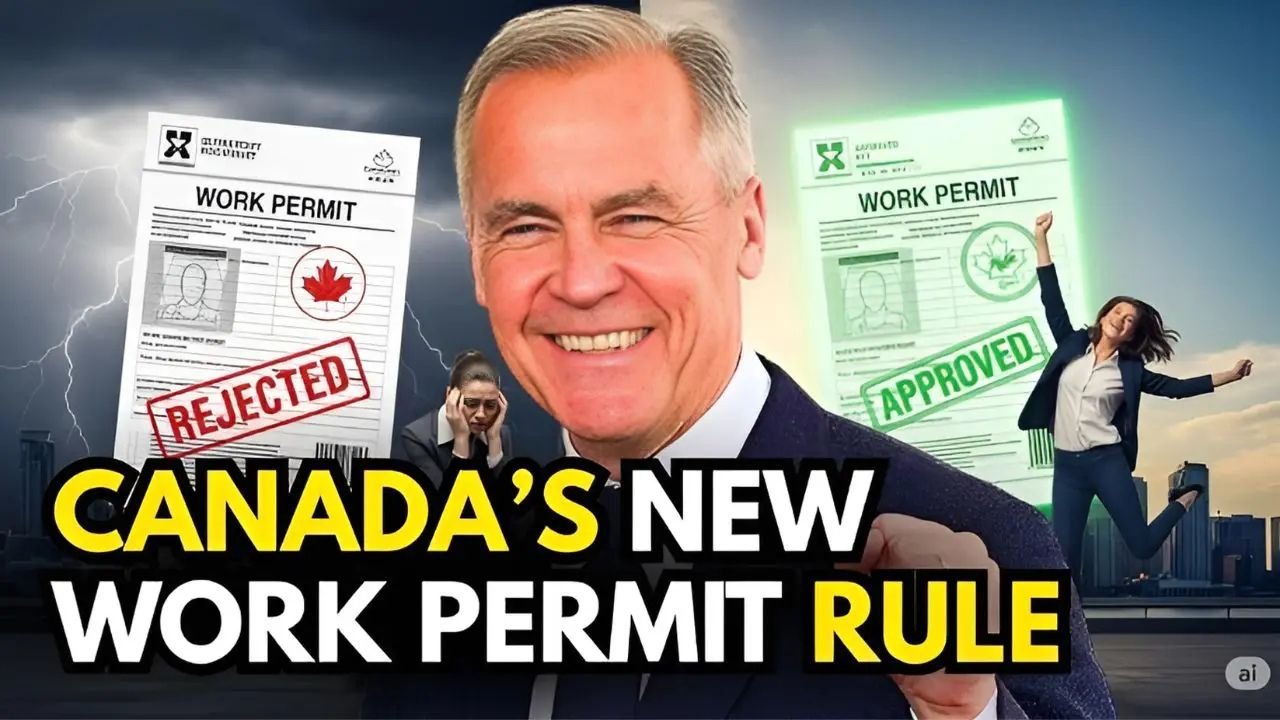Canada Work Visa 2025: Step-by-Step Guide to Requirements and Application
If you are looking for a job opportunity in a foreign country with high standards of living, Canada is one of the best choices in 2025. With its growing economy and skilled labor shortages, Canada continues to welcome foreign workers with open arms. But before packing your bags, it’s important to understand how to apply for a Canada Work Visa. This article provides a simple and clear step-by-step guide to the requirements and application process.
| Details | Description |
|---|---|
| Visa Type | Canada Temporary Work Permit |
| Validity | Usually up to 1-2 years (can be extended) |
| Processing Time | 2 to 8 weeks (depending on country & job type) |
| Application Fee | CAD 155 (approx.) |
| Language Requirement | Basic English or French |
| LMIA Requirement | Yes (in most cases) |
| Who Can Apply | Skilled, semi-skilled, and seasonal workers |
| Medical Exam | Required for some job categories |
| Minimum Age | 18 years |
| Open Work Permit Option | Yes (for some applicants) |
Introduction to Canada Work Visa
Canada offers several types of work permits to foreign nationals who wish to work temporarily in the country. A work visa (also called a work permit) is issued by Immigration, Refugees and Citizenship Canada (IRCC). Whether you’re a skilled IT professional, a farm worker, a chef, or a caregiver, Canada has job openings in many sectors. But first, you need to get the correct permit.
Types of Canada Work Permits
There are mainly two types of work permits:
-
Employer-Specific Work Permit – This is issued to applicants who already have a job offer from a Canadian employer. You can only work for that specific employer mentioned on the permit.
-
Open Work Permit – This allows you to work for any employer in Canada. It is usually given to spouses of skilled workers or international students.
Step-by-Step Guide to Apply for a Canada Work Visa
Step 1: Get a Job Offer
Before applying for a work visa, you need to find a job in Canada. Many Canadian companies post job openings on official websites and job portals. Make sure the employer is willing to support your visa application.
Step 2: Obtain LMIA (if needed)
Most work visa applications need an LMIA (Labour Market Impact Assessment). This is a document from Employment and Social Development Canada (ESDC) that proves the employer couldn’t find a Canadian citizen or permanent resident for the job.
However, some jobs are LMIA-exempt under international agreements, such as NAFTA or intra-company transfers.
Step 3: Prepare Required Documents
You need to prepare the following documents:
-
Valid passport
-
Job offer letter
-
LMIA (if applicable)
-
Proof of work experience
-
Educational certificates
-
Language test results (IELTS/TEF)
-
Medical test reports (for some jobs)
-
Police clearance certificate
-
Passport-size photos
Step 4: Apply Online or Offline
You can apply for a Canada work visa either online through the official IRCC website or by visiting your nearest visa application center. Online is usually faster and easier.
Fill out the application form carefully and upload all required documents. Pay the visa fee using a credit or debit card.
Step 5: Biometrics Appointment
After submitting your application, you’ll be asked to give biometrics (fingerprints and a photo) at the visa center.
Step 6: Wait for Approval
Visa processing can take from 2 weeks to 8 weeks, depending on your country of residence and the type of job. During this time, you may be asked to attend an interview or provide additional documents.
Step 7: Travel to Canada
Once your visa is approved, you’ll receive a Port of Entry (POE) Letter. When you arrive in Canada, the immigration officer at the airport will issue your work permit.
Eligibility Requirements
-
Must be at least 18 years old
-
Have a valid job offer from a Canadian employer
-
Meet health and character requirements
-
Have enough funds to support yourself initially
-
Language proficiency (English or French)
Documents Checklist
-
Job offer letter
-
Valid passport (must be valid throughout your stay)
-
Proof of funds
-
Educational and work certificates
-
Police clearance
-
Medical exam reports
-
Language test result (if applicable)
Benefits of Working in Canada
-
Competitive salary and high-quality work environment
-
Access to free or affordable healthcare
-
Opportunity to bring family on a dependent visa
-
Pathway to apply for Permanent Residency (PR)
-
Open Work Permit options for spouses
Things to Keep in Mind
-
Do not submit fake documents; it can result in a ban
-
Make sure the job offer is genuine and not from a fraudulent agency
-
Learn about Canadian workplace culture
-
Apply early as visa slots may get filled quickly
Frequently Asked Questions (FAQs)
1. Can I apply for a work visa without a job offer?
In most cases, you need a job offer to apply for a work visa. However, if you qualify for an open work permit, you don’t need one.
2. How long can I stay in Canada on a work visa?
Work permits are generally issued for 1-2 years but can be extended depending on your employer’s requirement and government rules.
3. What is LMIA and do I always need it?
LMIA is a document from the Canadian government that your employer may need to hire a foreign worker. Some jobs are exempt from LMIA, especially under trade agreements or special programs.
4. Can I take my family to Canada on a work visa?
Yes, you can take your spouse and children. Your spouse may also be eligible for an open work permit.
5. Is it possible to get Permanent Residency (PR) after working in Canada?
Yes, many foreign workers transition to PR through programs like Express Entry, Provincial Nominee Programs (PNPs), or the Canadian Experience Class.
Final Words
Getting a work visa for Canada in 2025 is a great opportunity if you are looking for a better life, stable job, and international exposure. The process is not very difficult if you follow each step carefully and prepare all required documents in advance. Canada continues to welcome hard-working, skilled, and honest individuals from around the world. So if you’re ready, start searching for a job and begin your visa journey today.
Working in Canada not only brings a stable income but also opens the doors to a better future for you and your family.



